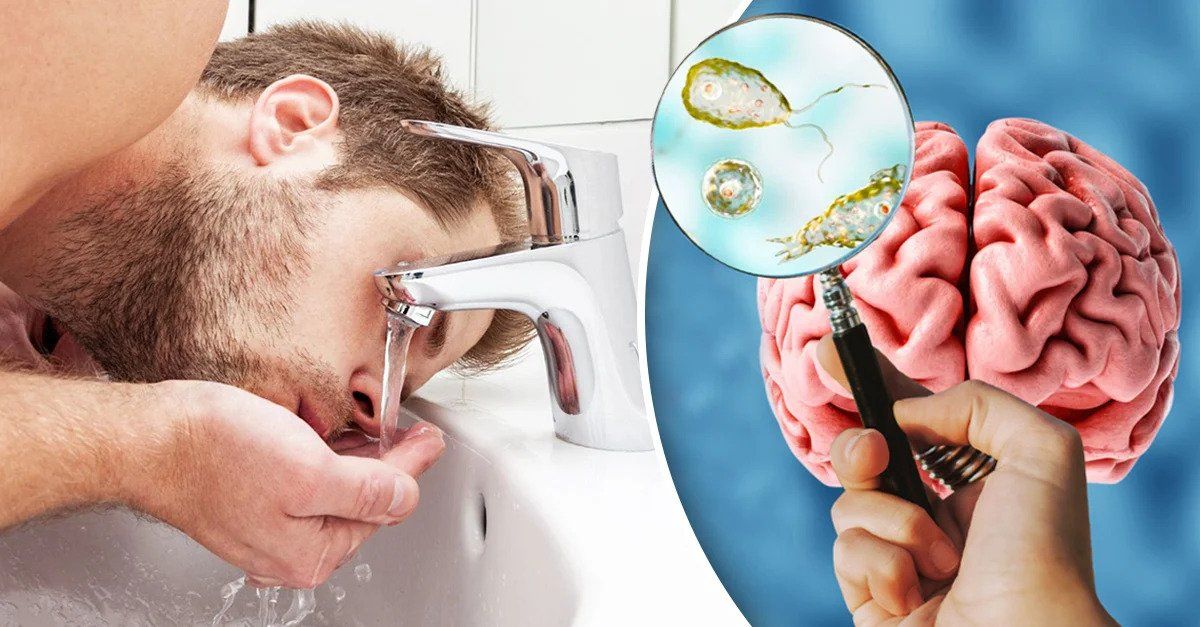- 12-Jul-23
Primary amebic meningoencephalitis (PAM), a rare and serious brain illness is brought on by the microscopic amoeba NaegleriaFowleri. It is frequently discovered in warm freshwater locations including lakes, hot springs, and unkempt swimming pools.
When contaminated water enters the body through the nose typically during activities like swimming or diving, the NaegleriaFowleri amoeba can travel through the nasal passages to the brain. Once in the brain, it causes inflammation and destruction of brain tissue leading to the symptoms of PAM. The infection caused by NaegleriaFowleri is very rare but extremely serious. Initial symptoms may include fever, headache, nausea, and vomiting which can progress rapidly to more severe symptoms such as stiff neck, seizures, confusion, hallucinations, and coma. Unfortunately, PAM is usually fatal with very few reported cases of survival.
It's important to note that NaegleriaFowleri infections are not caused by drinking contaminated water and the amoeba is not present in saltwater bodies like oceans and seas. Additionally, the infection cannot be transmitted from person to person.
NaegleriaFowleri In Lahore:
'Brain-eating amoeba' causes the death of a Pakistani man when he goes swimming. Health officials in Lahore are concerned about a suspected case of NaegleriaFowleri in a 30-year-old man.
The majority of people are aware that drinking contaminated water can upset their stomachs but as a recent case from Pakistan has demonstrated, it can also result in a parasite infection of the brain. An infection with the 'brain-eating amoeba' NaegleriaFowleri, which is generally found in warm bodies of water including ponds, lakes, rivers, and hot springs caused a 30-year-old man to pass away in Lahore this week. In Lahore, a city of more than 13 million people, a probable NaegleriaFowleri infection has never before been found.
NaegleriaFowleri Symptoms:
The symptoms of an infection caused by NaegleriaFowleri, known as primary amebic meningoencephalitis (PAM), typically start one to nine days after exposure to the amoeba. The early symptoms are similar to those of many other common illnesses which can make initial diagnosis challenging. However, the infection progresses rapidly and becomes increasingly severe.
Common symptoms of NaegleriaFowleri infection include:
- Fever.
- Severe headache.
- Nausea.
- Vomiting.
- Stiff neck.
- Loss of appetite.
- Changes in taste and smell perception.
- Sensitivity to light (photophobia).
- Altered mental status.
- Confusion.
- Hallucinations.
- Seizures.
- Coma.
As the infection progresses, it can lead to neurological symptoms and severe brain damage. Unfortunately, the condition is usually fatal, with only a few reported cases of survival. It's important to note that these symptoms are not specific to NaegleriaFowleri infection and can be indicative of other conditions. If you suspect you may have been exposed to contaminated water and are experiencing any of these symptoms, it is essential to seek immediate medical attention for proper evaluation and diagnosis.
When to See a Doctor?
If you suspect that you have been exposed to NaegleriaFowleri or if you are experiencing symptoms that could be related to an infection, it is crucial to seek immediate medical attention. Time is of the essence because NaegleriaFowleriinfections progress rapidly and can be life-threatening.
Integrated Medical Care Hospital (IMC Hospital):
One of Pakistan's top hospitals is the well-known and frequently referenced IMC Hospital. The IMC Hospital may now take advantage of the senior, knowledgeable, and experienced medical specialists' years of experience working at some of the most well-known and recognized medical facilities in the world because they have all been assembled under one roof.
Schedule an appointment with the Integrated Medical Care Hospital (IMC Hospital).

 Map
Map










